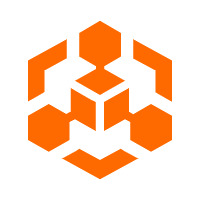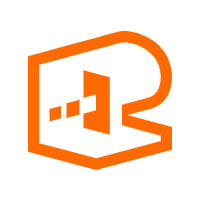No matter what industry you work in, trust is a vital business attribute. Blockchain technology not only builds trust between your enterprise and its customers, but also provides you with a range of innovative business models to both comply with industry standards and stay ahead of the competition.
Blockchain acts as a digital ledger. Once an entry is logged on the blockchain, it cannot be changed. As such, blockchain ensures the authenticity of each piece of data behind every one of your products – and supports end-to-end traceability across your supply chain.
Let's examine how a typical blockchain solution could work using our Blockchain-as-a-Service platform and a supply chain example from the dairy industry.
When milk is produced, the dairy farmer adds a range of details to the blockchain. When the milk passes from the farmer to the distributor and then the store, any transactional information or data about its journey is digitally recorded onto the blockchain too.
By the time the milk reaches the store, a complete history of its lifetime is now available. Consumers can access this information via a scannable smart label on the carton, which guarantees that the milk meets their specific dietary needs and/or socio-economic values.
For example, one consumer may want to check its nutritional content, and another may want to buy from a local supplier. This allows your business to compete based on the uniqueness of its products and processes – and provides a higher level of trust thanks to the blockchain-nature of the data.
There is also no risk of data tampering on the blockchain. This provides guaranteed security and compliance across multiple industries, including the medical, retail and logistics sectors, to name a few.
Our BaaS platform also allows different stakeholders to query and audit the generated information at different granularity levels to protect your business's privacy. For example, in the pharmaceutical sector, this could allow private authorities to detect and report drugs suspected as unapproved, counterfeit or dangerous to the public.
Furthermore, if there is a product quality or safety issue, blockchain provides a shared ledger of product and transactional information, making it easy to trace and recall the product, as well as identify the responsible party.
The blockchain could have further consequences for pricing models because BaaS integrates fully with the Alibaba Cloud Internet of Things (IoT) service.
Going back to our original example, milk is a perishable item. As it passes along the supply chain, the environmental conditions it's subjected to could automatically be monitored and logged using IoT-enabled sensors.
Coupled with advanced analytics and a data warehousing solution like MaxCompute, consumables (like milk) with the longest shelf life or highest calculated nutritional content could be priced at a premium. As a result, dynamically priced produce could replace sell-by dates and promotional offers.
To conclude, our BaaS platform provides complete traceability to the world's products as they pass along the supply chain, helping businesses not only build trust with their brand but also unleashing novel business models. Click here to find out more.
A Close-Up Look into Alibaba's New Generation of Database Technologies

2,593 posts | 791 followers
FollowAlibaba Clouder - September 28, 2018
Iain Ferguson - January 18, 2022
Alibaba Clouder - December 21, 2018
Alibaba Cloud Blockchain Service Team - August 19, 2019
Alibaba Clouder - April 16, 2020
Alibaba Cloud Blockchain Service Team - January 17, 2020

2,593 posts | 791 followers
Follow Blockchain as a Service
Blockchain as a Service
BaaS provides an enterprise-level platform service based on leading blockchain technologies, which helps you build a trusted cloud infrastructure.
Learn More API Gateway
API Gateway
API Gateway provides you with high-performance and high-availability API hosting services to deploy and release your APIs on Alibaba Cloud products.
Learn MoreLearn More
More Posts by Alibaba Clouder